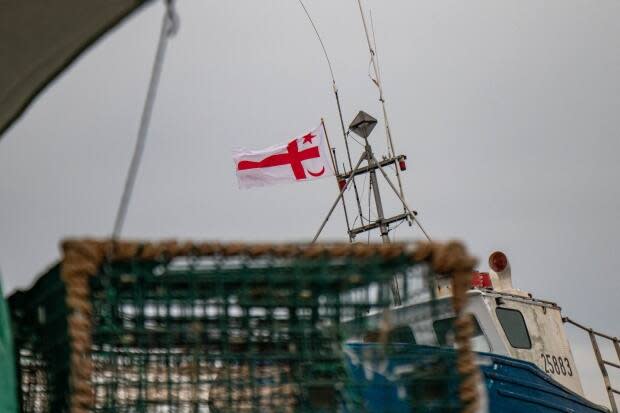Nova Scotia First Nation indefinitely postpones start of lobster fishery

The Sipekne'katik First Nation has indefinitely postponed the start of a communal lobster fishery planned for Thursday in southwestern Nova Scotia.
The band said it was concerned for the safety of its fishermen and lacked resources to launch the fishery in St. Marys Bay.
"The reality is that we would need to provide our own security and police our own gear getting seized and it feels like a costly prospect for our community after all that we have lost," Chief Mike Sack said in a news release.
The decision to postpone came following an emergency meeting of fishermen at Sipekne'katik on Wednesday morning.
No guarantees
The band said the Department of Fisheries and Oceans returned gear and traps last week as well as licences and tags for fishing under the food, social and ceremonial agreement.
"With no guarantees of safeguards in place for our community members along with the need to repair our gear, people are feeling extremely wary of fishing," said Sack. "It is unfortunate but it is the reality that we are left with after the losses we incurred last fall."
Changing course again
Sipekne'katik's decision is the latest twist in its plans to resume lobster fishing in 2021.
In April, Sack announced the band would resume an out-of-season moderate livelihood lobster fishery June 1.

He pivoted last week, saying Indigenous fishermen would instead fish for lobster in St. Marys Bay under communal food, social and ceremonial licences, which do not have commercial season restrictions.
The licences have government authorization, but come with lower trap limits than those Sipekne'katik issued for the moderate livelihood fishery it launched last fall outside of federal regulations.
Sack said last week moderate livelihood fishing would take place in a few weeks.
Band fishermen, he added, would sell an undisclosed portion of the catch "to cover costs," even though FSC licences do not permit the sale of the catch. Provincial regulations also prevent processors from buying fish caught under those licences.
Sack scoffed at the notion there will not be willing buyers.
"I'd say 75 per cent of the buyers in southwest Nova Scotia will take lobsters for cash any day," Sack said. "And they do so and they've been doing so and they'll continue to do so."
Confrontation delayed
The decision to delay puts off a looming confrontation with authorities and, potentially, commercial fishermen.
Protests — sometimes violent — from commercial fishermen greeted the launch of the first self-regulated moderate livelihood lobster fishery in Nova Scotia.
Sipekne'katik said it was exercising a treaty right to earn a moderate living from fishing recognized, but not defined, by the Supreme Court of Canada in 1999.
The court also gave Canada the right to regulate the fishery.
DFO has not yet approved any Indigenous moderate livelihood fishery in Nova Scotia and warned it will enforce rules that prohibit any unauthorized fishery.
Commercial fishermen said the moderate fishery was unfair and demanded DFO shut it down.
Commercial fishermen pulled band members' traps from the water.
Later in the fall, DFO also seized hundreds of traps in St Marys Bay, many belonging to Sipekne'katik members.
In Wednesday's release, Sipekne'katik said the chief and council will continue to consult with community members and fishermen "to better gauge the most beneficial path forward."
MORE TOP STORIES

